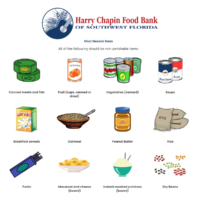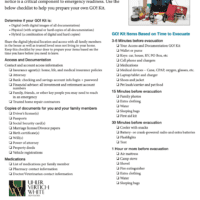Family Philanthropy: Multigenerational Dialogue Widens Positive Impact

At its core, family philanthropy incorporates just that: family and philanthropy. This means that a large part of the practice involves familial ties and relationships, which can be tricky to navigate at times, but can also allow for more effective planned giving and estate planning. Thus, building and fostering relationships with family is integral to family philanthropy, and doing so can provide many benefits.
National Philanthropy Day, which occurs each November, is a wonderful reminder of this, and can serve as an impetus for putting one’s own family planning strategies into action. Charitable giving, no matter the time of year, is beneficial to both those giving and receiving, but particularly as we approach the holiday season, can be particularly meaningful.
What is Estate Planning & Family Philanthropy?
While there is no standard research definition of “family philanthropy”, it is often used interchangeably with “family foundation” to denote the involvement of individuals and their family members in the foundation, often passed on generationally. Estate planning is a more specific term relating to the more general and comprehensive financial strategy behind family philanthropy, involving the organization and distribution of the foundation’s assets upon an individuals’ passing. This planning can include putting in place wills, trusts, power of attorney, healthcare proxy, and beneficiary designations.
Benefits of Family Philanthropy
There remain a variety of benefits to investing in a family philanthropy strategy. Financially, estate planning affords these foundations, and the associated family, asset protection, minimized taxes, and avoiding probate. On the interpersonal side, however, the benefits include:
- Opening intergenerational dialogue: more fluid dialogue between grandparents, children, and grandchildren helps to establish a set of family values as well as a more solid relationship between members.
- Opportunity to express and materialize one’s own wishes: As part of a more open dialogue, it can be incredibly helpful to express aloud one’s wishes – particularly to any beneficiaries – and explain one’s personal value system in order to potentially more effectively support those very values.
- Creating a lasting legacy: By incorporating multiple generations into one’s philanthropy efforts, a legacy can be created that will last for many years to come, creating intergenerational connections and furthering one’s own impact through planned giving.
- Preserving familial harmony: Often, incorporating family members into the family foundation, families must work together, building trust and relationships that end up uniting members for a longer period of time than without the foundation.
- Caring for dependents: Of course, there is also a certain security and satisfaction that comes with ensuring the continued support of dependents – and family philanthropy can be a great avenue to achieve that.
Strategies for Family Philanthropy
In order to reap the benefits described above, family philanthropy does require some work, both on the familial and financial levels. It was described by David D. Weitnauer as a “relational enterprise”, and as he emphasized, this means that while it is important to pay attention to the ‘relational’ aspect and cultivate strong family relationships, the financial, business-like side of family philanthropy should also be kept in mind. In order to achieve both, building trust among family members and finding common ground – while still being able to address conflict – is imperative. These interpersonal strategies can aid in financial strategies and estate planning to protect your assets and ensure a smooth transition of wealth to the next generation.
Securing family philanthropy strategies now can be a great financial and familial boon to multiple generations of your family, from ensuring support for dependents, legacy for future generations, and much more. Planned and charitable giving allows donors to support their value systems and have a positive impact in the world, and through family philanthropy, that impact can be widened through multiple individuals and generations, extending positive impacts.







